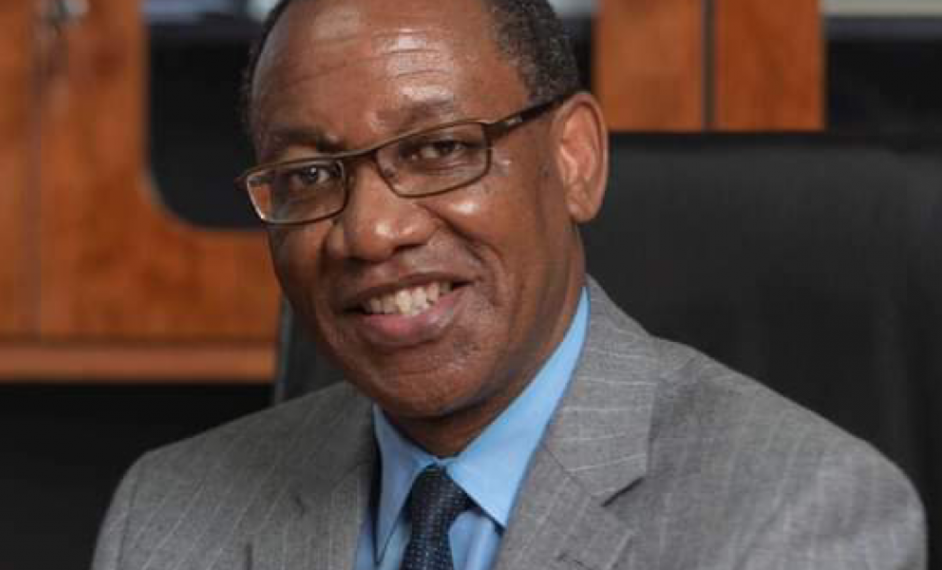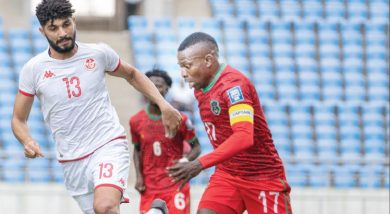Ltam changes focus on nurturing talent
Under-12 lawn tennis players Mwai Kadam’manja and Linda Msiska who won gold and silver respectively at the Maputo Junior Circuit Championships last week, face uncertainty once they graduate into senior ranks.
Over the past decade, at least 10 tennis players won medals at international contests such as the Southern African Junior Circuit Championships, but none of them has progressed into the senior ranks at 18. Most of them quit the sport due to scarcity of competitions and training camps.
When they compete against players from other countries during the Puma Energy Malawi Open Tennis Championships at Blantyre Sports Club (BSC), it is foreigners who dominate.
Since the annual competition started three years ago, the best achievement for local athletes has been to drop in the quarter-finals. Zambian Edgar Kazembe has been winning the title in the men’s category. Since then whereas in the ladies’ section, the title holder is a Zimbabwean.
“We could easily beat the Zambians in junior competitions then, but now they are ahead of us in the senior ranks. They even wonder why we are not ticking anymore,” explained 26-year-old Ronald Kandulu, who won bronze at the Southern Africa Junior Circuit Championships in 2000.
Kandulu is among the country’s top six players who excelled in the junior ranks both locally and internationally, but are struggling to tick in senior competitions. The other stars are Andrew Chiliramoto, Charles Msatiyenda, Tadala Kandulu, Mary Luhanga and Patricia Matola.
But Kandulu says he and his compatriots can break into the top-four during this year’s Malawi Open Championships in September if more tournaments are introduced locally; and if companies come in to help them to participate in international contests frequently.
“That would improve our game and performance. It is not healthy to have only one competition for senior players,” said Kandulu, who boasts of 14 gold medals and 12 silver from local junior competitions.
In the junior ranks, Chiliramoto swayed hearts of International Tennis Federation (ITF) scouts who sent him to the ITF training centre in South Africa for tennis scholarship in 2006. There, he passed trials but was not roped in because Ltam could not afford to pay for his development fee.
“Otherwise, he would have been the first Malawian lawn tennis talent to be at the ITF centre before Chisomo Lumeta who made it in 2009. Chiliramoto, now 19, rarely plays tennis as he is busy with his teaching profession at a primary school in Nsanje,” said Tadala Kandulu, who is now Ltam media executive.
Lumeta, 15, has put Malawi on the international map by becoming Africa’s second best junior tennis player and the world’s number 343 out of over 2 000 athletes. He has also made history by becoming the first Malawian to qualify for this year’s prestigious Davis Juniors Cup and the ITF World Junior Championships in Spain and Czech Republic respectively.
But his achievements would go into the dustbin if Ltam does not plan his future in tennis once he turns 18 because ITF entirely leaves the responsibility of supporting the athletes at that stage to its member associations and players.
Nevertheless, Ltam president Francis Mwansa said the loss of lawn tennis talent will become history in the next five years as they have instituted measures to nurture talent starting with support for Morocco-based Lumeta who will graduate into the senior ranks in 2016.
“We want to experiment our development strategy on Lumeta. For him, we have identified a sponsor who will pay for his international competitions once he becomes a senior player in return for advertisements on his sportswear and we will also put him on scholarship at a university.
“This trend will be applied to other talented players we will be developing from the junior level in the next five years,” he said.
Mwansa said this year they will introduce three more competitions for senior players. He said the best players from these events will be put in a month-long training camp ahead of the Malawi Open every year.
“We are tired of suffering defeats during Malawi Open. We are restructuring our tennis development strategy to ensure that our athletes succeed in both junior and senior competitions.
“We want our players to have a future in lawn tennis. Elsewhere, this sport is big in terms of providing professional opportunities for nurtured talents, but we have not properly used the chances we had for the last decade by ignoring senior players. Starting this year, things will change for the better,” said Mwansa.





